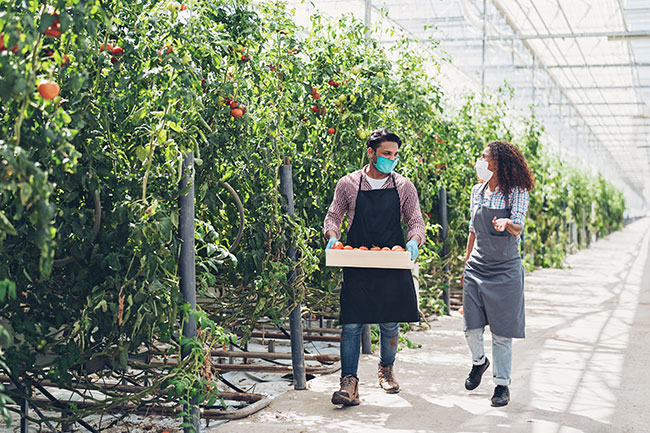
Features
Labour
Management
Understanding the role of diversity, equity and inclusion in greenhouses
Organizational approaches are changing in response to the diverse needs of workplace populations, through inclusive and productive working environments.
October 26, 2021 By Janelle Abela
 Photo: © pixelfit / e+ / Getty images
Photo: © pixelfit / e+ / Getty images Many sectors are committing to changes within organizational culture, by implementing diversity, equity and inclusion strategies. With these changes occurring across all industries, it is critical that the agricultural sector highlights areas of improvement – especially given the invaluable role that the foreign temporary workers program has played since the 1960s.
What is diversity, equity, and inclusion?
Diversity, equity, and inclusion (DE&I) is a three-step transformational process that supports our change toward more welcoming, collaborative, and productive social and working environments.
Diversity is the ‘who’ and ‘what’ – the unique backgrounds, personalities, experiences, beliefs, etc., that make us who we are. Examples such as race, sex, religion, sexual orientation, ability, and many other attributes of personal identity are what is used to classify diversity.
Equity is the ‘how’ – the act of being fair or impartial, and it is the means to get to the next step: inclusion.
Inclusion is being respected and appreciated – one must feel that they are not just a statistical representation. Essentially, DE&I is recognizing, responding to, and valuing the diversity within your organization.
Transforming organizational culture
Already, the greenhouse industry sees significant diversity with migrant workers coming to Canada from Mexico, the Caribbean, Central America, Southeast Asia and more. International labour programs are an essential resource for growers in supplementing the local supply of workers, as the interest in agriculture as a career choice continues to decline domestically.
With the growth of agriculture in Canada, we will start to see more competition in hiring, making it critical to improve organizational culture and become a desired employer to attract potential employees, including local talent. But diversity goes beyond where workers originate from, it is responsive to a larger change that creates a more positive environment to work within, supporting the growth of the organization. Inclusive organizations see higher profits, better decision making, faster problem solving, morale increase, and more.
Supporting diversity, equity, and inclusion starts within the organization, through a top-down approach. As senior level individuals within organizations become proficient with inclusive practices, they will not only emulate these practices through their transformational approaches, but they will be able to support the rest of the organization in the creation of a stronger culture. Then, larger scale approaches can be enacted, including continued training, policy changes, and responsive hiring practices. During this process of transformation, it is important that organizations bring in or consult professionals to collaborate on their journey and to ensure that their strategies are effective, efficient and up to date.
Supporting foreign workers
For years, public opinion has raised issues around the treatment of migrant workers in the agricultural sector. These concerns were exacerbated during the COVID-19 pandemic, as farms strove to respond to the basic and cultural needs of migrant workers amid uncertain health protocols. There are limited government resources regarding the care of migrant workers in Canada, placing the onus and responsibility on greenhouse operators – at which point DE&I practices become a moral response.
Incorporating DE&I into the agricultural sector ranges from simple acts, such as the proper pronunciation of a name, to larger transformations, such as incorporating culturally responsive food programs. There are many components in between that greenhouse operators also must address, including diversity, equity and inclusion guidelines, policies, and procedures, continued professional development for domestic and migrant employees, and language training. Transformative practices such as these compound into recognition of the diverse populations working within agriculture and invite the celebration of these diversities by enacting change.
Janelle Abela is the founder of Diverse Solutions Strategy Firm and a business advisor for WEtech Alliance. Do you have questions about diversity, equity, and inclusion? Connect via email at janelle@diversesolutions.ca
Print this page